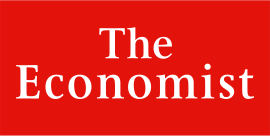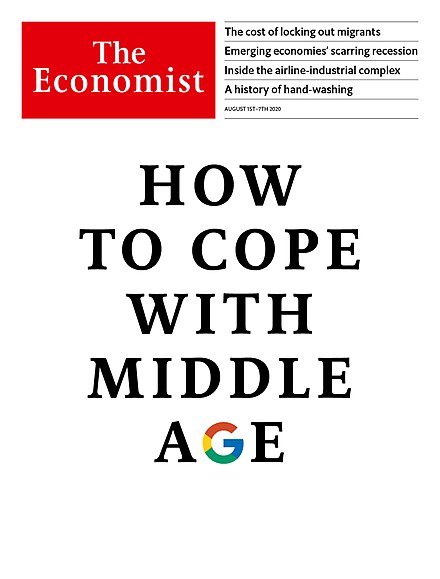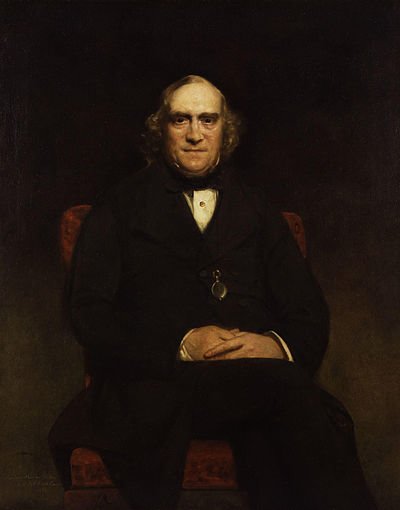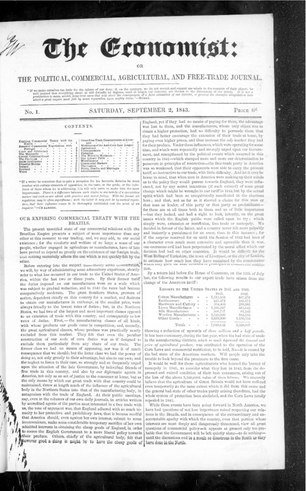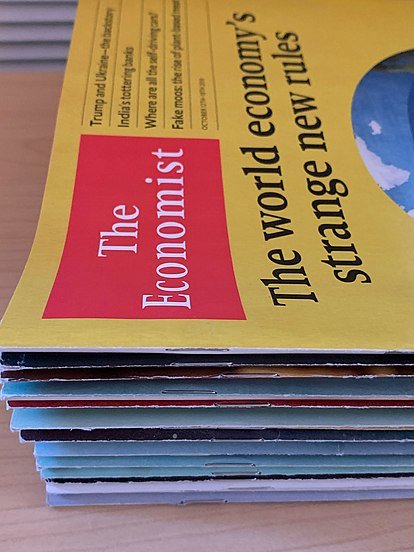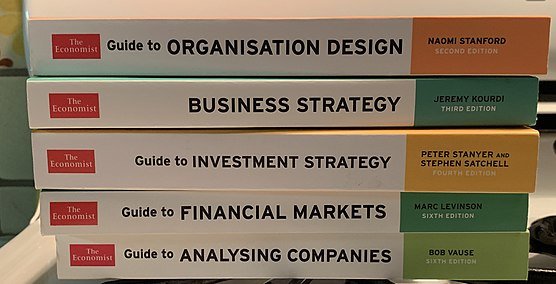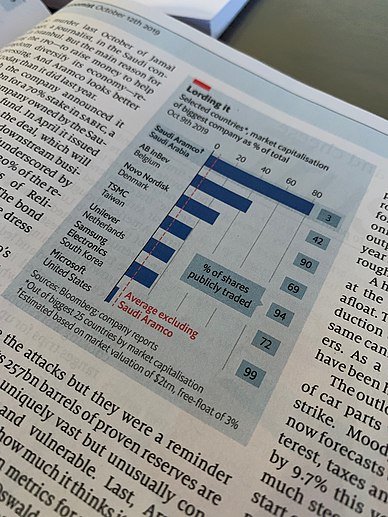British Heritage
Remember, Cherish, Learn.
beta
The Economist - The Weekly Newspaper since 1843
Contribution of The Economist to British Heritage.
The Economist, since its founding in 1843, has played a significant role in shaping British heritage and has made valuable contributions to the intellectual landscape of the United Kingdom. Founded by Scottish economist James Wilson, the newspaper was initially established to support the repeal of the British Corn Laws, a system of import tariffs that hindered international trade. The Economist's advocacy for free trade and open markets reflected the ideals of classical economic liberalism, which eventually became a cornerstone of British economic policies.
Throughout its long history, The Economist has been a champion of radical centrism, promoting policies and governments that maintain centrist politics. This emphasis on moderation and pragmatism has influenced the British political discourse, encouraging a balanced approach to governance. The newspaper's commitment to rigorous fact-checking and strict copy-editing has earned it a reputation for reliable and credible journalism, contributing to the British tradition of robust and accountable media.
Moreover, The Economist's distinct writing style, characterized by its dry wit, precise language, and extensive use of wordplay, has become an integral part of British literary culture. The publication's famous red nameplate and illustrated covers have made it instantly recognizable and have contributed to the visual heritage of British journalism.
As an international weekly newspaper with a global readership, The Economist has also played a vital role in shaping Britain's position in the world. Its coverage of international affairs, politics, and economics has provided valuable insights to policymakers and business leaders, elevating Britain's reputation as a center of knowledge and expertise.
Over the years, The Economist has established itself as a premier source of news, analysis, and commentary on global affairs. Its commitment to editorial excellence, data-driven journalism, and international perspective has earned it a loyal and influential readership. As of 2019, its average global print circulation exceeded 900,000, with a digital readership of over 1.6 million. Additionally, its presence on social media platforms has extended its reach to an audience of 35 million.
The Economist's legacy lies in its long-standing commitment to economic liberalism and its role in shaping economic policy discussions both in Britain and around the world. Its endorsements of free markets, free trade, and globalization have left a lasting impact on economic thought and policy-making. The newspaper's strong advocacy for data journalism and its early adoption of graphical representations of information have set new standards for visual storytelling in the media.
The newspaper's ability to maintain a collective and consistent voice, with articles written anonymously and under a unified editorial stance, has been a distinctive feature contributing to its unique identity. Its dedication to providing readers with a broad perspective on world events, encompassing both political and business perspectives, has earned it a reputation as a trusted and authoritative source of information.
The Economist's enduring legacy and significant contribution to British heritage lie in its role as an influential champion of economic liberalism, its commitment to rigorous journalism, and its distinctive writing style and visual identity. Founded to advocate for free trade and economic reform, the newspaper has helped shape British economic policies and contributed to the country's reputation as a center of expertise in global affairs.
Its data-driven approach to journalism and innovative use of graphics have set new standards for visual storytelling and information dissemination in the media industry. The Economist's consistent voice, maintained through anonymous article authorship, has become a unique hallmark of the publication, contributing to its recognition as a reputable and trustworthy source of information.
As an international weekly newspaper, The Economist has also played a role in shaping Britain's position in the world. Its coverage of global affairs and business developments has provided valuable insights to policymakers and business leaders, elevating Britain's reputation as a hub of knowledge and expertise.
Through its dedication to quality journalism, advocacy for economic liberalism, and distinctive editorial approach, The Economist has left an indelible mark on British heritage and continues to be a prominent voice in shaping the world's economic and political discourse.
Throughout its long history, The Economist has been a champion of radical centrism, promoting policies and governments that maintain centrist politics. This emphasis on moderation and pragmatism has influenced the British political discourse, encouraging a balanced approach to governance. The newspaper's commitment to rigorous fact-checking and strict copy-editing has earned it a reputation for reliable and credible journalism, contributing to the British tradition of robust and accountable media.
Moreover, The Economist's distinct writing style, characterized by its dry wit, precise language, and extensive use of wordplay, has become an integral part of British literary culture. The publication's famous red nameplate and illustrated covers have made it instantly recognizable and have contributed to the visual heritage of British journalism.
As an international weekly newspaper with a global readership, The Economist has also played a vital role in shaping Britain's position in the world. Its coverage of international affairs, politics, and economics has provided valuable insights to policymakers and business leaders, elevating Britain's reputation as a center of knowledge and expertise.
Legacy and Success
Over the years, The Economist has established itself as a premier source of news, analysis, and commentary on global affairs. Its commitment to editorial excellence, data-driven journalism, and international perspective has earned it a loyal and influential readership. As of 2019, its average global print circulation exceeded 900,000, with a digital readership of over 1.6 million. Additionally, its presence on social media platforms has extended its reach to an audience of 35 million.
The Economist's legacy lies in its long-standing commitment to economic liberalism and its role in shaping economic policy discussions both in Britain and around the world. Its endorsements of free markets, free trade, and globalization have left a lasting impact on economic thought and policy-making. The newspaper's strong advocacy for data journalism and its early adoption of graphical representations of information have set new standards for visual storytelling in the media.
The newspaper's ability to maintain a collective and consistent voice, with articles written anonymously and under a unified editorial stance, has been a distinctive feature contributing to its unique identity. Its dedication to providing readers with a broad perspective on world events, encompassing both political and business perspectives, has earned it a reputation as a trusted and authoritative source of information.
Contribution to British Heritage
The Economist's enduring legacy and significant contribution to British heritage lie in its role as an influential champion of economic liberalism, its commitment to rigorous journalism, and its distinctive writing style and visual identity. Founded to advocate for free trade and economic reform, the newspaper has helped shape British economic policies and contributed to the country's reputation as a center of expertise in global affairs.
Its data-driven approach to journalism and innovative use of graphics have set new standards for visual storytelling and information dissemination in the media industry. The Economist's consistent voice, maintained through anonymous article authorship, has become a unique hallmark of the publication, contributing to its recognition as a reputable and trustworthy source of information.
As an international weekly newspaper, The Economist has also played a role in shaping Britain's position in the world. Its coverage of global affairs and business developments has provided valuable insights to policymakers and business leaders, elevating Britain's reputation as a hub of knowledge and expertise.
Through its dedication to quality journalism, advocacy for economic liberalism, and distinctive editorial approach, The Economist has left an indelible mark on British heritage and continues to be a prominent voice in shaping the world's economic and political discourse.
- The Economisten.wikipedia.org
